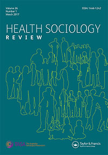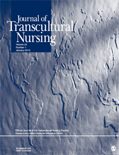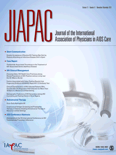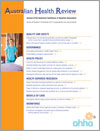
International Journal of Circumpolar Health
Scope & Guideline
Shedding light on unique health challenges in the Arctic.
Introduction
Aims and Scopes
- Indigenous Health and Well-being:
Research on the health profiles and well-being of Indigenous populations in circumpolar regions, including studies on mental health, chronic diseases, and the impact of traditional practices. - Environmental Health Concerns:
Investigations into the effects of environmental factors, such as climate change and pollution, on health outcomes in Arctic communities, including studies on contaminants and their health implications. - Healthcare Accessibility and Equity:
Exploration of barriers to healthcare access for Indigenous populations, with a focus on health systems, policy analysis, and community-driven health interventions. - Cultural Competence in Healthcare:
Research emphasizing the importance of culturally safe healthcare practices and the integration of Indigenous knowledge in health services. - Epidemiological Studies:
Epidemiological research focusing on disease prevalence, health trends, and risk factors specific to circumpolar populations, including chronic and infectious diseases. - Community-Based Participatory Research:
Studies that involve local communities in the research process to ensure that health interventions are relevant and effective for Indigenous populations.
Trending and Emerging
- Mental Health and Resilience:
There is an increasing focus on mental health among Indigenous populations, particularly studies addressing resilience, trauma, and community-driven mental health initiatives. - Impact of Climate Change on Health:
Research exploring the direct and indirect health impacts of climate change on circumpolar communities is gaining momentum, emphasizing the need for adaptive health strategies. - Health Equity and Social Determinants:
Emerging studies are increasingly addressing health equity issues, focusing on social determinants of health that affect Indigenous populations' access to care and health outcomes. - Telehealth and Remote Care Innovations:
The COVID-19 pandemic has accelerated interest in telehealth solutions for remote communities, leading to innovative research on remote care delivery models. - Integration of Indigenous Knowledge in Health Research:
An emerging trend is the incorporation of Indigenous knowledge systems into health research methodologies, promoting culturally relevant health interventions. - Gender and Health Disparities:
There is a growing body of research focusing on gender-specific health issues within Indigenous populations, including maternal health and gender-based violence.
Declining or Waning
- Traditional Medicine and Practices:
Research on traditional healing practices and their integration into modern healthcare has become less frequent, possibly overshadowed by a focus on biomedical approaches. - Cold-Weather Health Effects:
Although still important, there appears to be a waning interest in studies specifically addressing health effects directly related to extreme cold exposure, as broader environmental health themes gain traction. - Historical Health Analysis:
The focus on historical health trends and analyses, including the long-term impacts of past health policies, has decreased, with more emphasis shifting towards current health challenges. - Occupational Health in Isolated Settings:
Research specifically targeting occupational health issues in extreme environments has become less common, potentially due to a shift towards more community-focused health studies. - Nutritional Studies on Traditional Diets:
While nutrition remains a significant area of research, specific studies focusing on traditional diets and their health impacts have been less frequent compared to broader dietary studies.
Similar Journals

Kesmas-National Public Health Journal
Driving Impactful Discussions in Public HealthKesmas-National Public Health Journal is a vital platform for the dissemination of research in the field of public health, published by UNIV INDONESIA. With its ISSN of 1907-7505 and E-ISSN of 2460-0601, this Open Access journal has been committed to promoting accessible health knowledge since 2006. Based in Indonesia, the journal addresses critical areas of public health, including epidemiology, health policy, and environmental health, with the aim to foster health improvements in diverse communities. Despite its classification in the Q4 category across several important fields as of 2023, including Epidemiology and Public Health, the journal remains a unique resource for local and international researchers seeking to contribute to pressing public health issues. With its Scopus rankings reflecting persistent challenges within the discipline, Kesmas invites researchers, professionals, and students to engage with its content to drive impactful discussions and advancements in health policy and practice.

Health Sociology Review
Advancing Insights into Health Sociology and PolicyHealth Sociology Review is a premier publication within the fields of health sociology and social sciences, dedicated to advancing knowledge and understanding of the complex interactions between health, society, and policy. Published by Routledge Journals, Taylor & Francis Ltd, this journal boasts an impressive impact factor, reflecting its high-quality research contributions and influential standing within the academic community. With Q1 rankings in both Health (Social Science) and Sociology and Political Science for 2023, it is recognized as a leading source of contemporary scholarship, currently indexed in Scopus with commendable rankings in its respective categories. The journal offers a platform for researchers, professionals, and students to publish original empirical research, critical reviews, and theoretical explorations that illuminate the social determinants of health and the implications for policy-making. Though it is not an open-access journal, it remains accessible through various academic platforms, ensuring widespread dissemination of its critical insights. The Health Sociology Review stands as an essential resource for those engaged in the vital interplay between health and society, marking its significance in shaping future discourse and research in the field.

Transcultural Psychiatry
Innovating Insights in Transcultural PsychiatryTranscultural Psychiatry is a leading interdisciplinary journal published by SAGE Publications Ltd, dedicated to advancing the understanding of the interplay between culture and mental health. With a storied history dating back to 1964 and converging until 2024, this esteemed journal holds a prominent position in the field, as evidenced by its Q1 ranking in Health (Social Science) and Q2 in Psychiatry and Mental Health. It ranks #71 in Scopus within the social sciences domain, reflecting its vital contribution to academia, with an 80th percentile standing that underscores its impact. Although it is not open access, Transcultural Psychiatry is committed to providing valuable insights and research relevant to scholars, healthcare practitioners, and policymakers engaged in culturally informed mental health practices. Through rigorous scholarly articles, the journal aims to bridge cultural understandings and promote global dialogue on psychiatric practices, making it an essential resource for anyone interested in transcultural dimensions of mental health.

Health & Justice
Empowering Change Through Research in Health and JusticeHealth & Justice, published by SPRINGERNATURE, is an esteemed open-access journal dedicated to the multifaceted intersection of health and legal studies, offering a critical platform for researchers and professionals alike. With an E-ISSN of 2194-7899, this journal has been fostering knowledge dissemination since its inception in 2013 and continues to be pivotal in advancing scholarly discourse in its fields. As of 2023, it proudly occupies a prestigious Q1 ranking in Law and a Q2 ranking in Public Health, Environmental and Occupational Health, reflecting its commitment to high-quality research and its relevance in contemporary debate. Residing in the United Kingdom, the journal covers a broad spectrum of topics related to health policy, legal frameworks pertaining to health care, and social justice issues, making it a vital resource for those aiming to influence practices and policies in these arenas. With an aim to provide accessible knowledge that bridges gaps between law and health disciplines, Health & Justice stands out as an essential source for researchers, students, and professionals navigating these interconnected fields.

Finlay
Connecting minds, sharing discoveries in medical science.Finlay is an esteemed open-access journal published by CENTRO PROVINCIAL INFORMACION CIENCIAS MEDICAS CINFUEGOS, dedicated to the dissemination of cutting-edge research in the field of medical sciences. With an ISSN of 2221-2434, this journal has been a vital resource since its establishment in 2011, promoting free and immediate access to high-quality scholarly work. Finlay not only serves as a platform for innovative studies but also aims to foster collaboration among researchers, healthcare professionals, and students within the medical community. The journal’s commitment to open access facilitates a wider reach and ensures that groundbreaking findings are available to a global audience. As an essential contributor to the scientific discourse, Finlay encourages submissions that address pressing health challenges and explore novel therapeutic approaches, thereby advancing the field of medicine in Cuba and beyond.

Journal of Transcultural Nursing
Uniting healthcare professionals in the pursuit of transcultural understanding.The Journal of Transcultural Nursing, published by SAGE Publications Inc, stands as a definitive platform dedicated to advancing the field of multicultural healthcare and transcultural nursing practices. Established in 1989 and continuing its impactful contribution through 2024, this esteemed journal encompasses a wide range of interdisciplinary research and evidence-based practice aimed at improving nursing care for diverse populations. With an impressive Q1 ranking in the Nursing category, and a prominent position at 22nd out of 139 in General Nursing on Scopus, it garners a significant readership among researchers and healthcare professionals alike, ensuring the dissemination of high-quality knowledge. The journal aims to bridge cultural gaps and enhance nursing care through innovative studies, reviews, and policy analysis, making it an invaluable resource for those committed to culturally competent nursing. While not explicitly open access, the journal's commitment to high-impact research allows for accessible insights beneficial to researchers, professionals, and students seeking to deepen their understanding of transcultural issues in nursing.

Journal of Migration and Health
Exploring the Vital Link Between Migration and HealthJournal of Migration and Health, published by ELSEVIER, is a leading open access journal dedicated to exploring the intersection of migration and health, a critical area of study in contemporary social sciences. Since its inception in 2020, this journal has quickly established itself in the academic community, earning a prestigious Q1 ranking in several categories including Demography, Health (Social Science), Infectious Diseases, and Sociology and Political Science for 2023. With an impactful presence reflected in its Scopus Rankings—such as Rank #15 in Demography and Rank #57 in Health (social science)—the journal serves as a vital platform for researchers, practitioners, and students interested in understanding the complex health dynamics affecting migrant populations. The journal promotes scholarly discourse through rigorous peer-reviewed articles, fostering knowledge that informs health policies and practices relevant to migrants across the globe. For those keen on delving into pressing health issues influenced by migration trends, the Journal of Migration and Health offers rich insights and research opportunities, playing an essential role in shaping the future of health studies in a global context.

Journal of the International Association of Providers of AIDS Care
Bridging Gaps in HIV/AIDS Knowledge and CareJournal of the International Association of Providers of AIDS Care, published by SAGE PUBLICATIONS INC, is a distinguished open-access journal dedicated to the field of HIV/AIDS care and research. Since its inception in 2002, the journal has provided an essential platform for the dissemination of high-quality, peer-reviewed scholarly articles that advance knowledge in exciting areas such as dermatology, immunology, and infectious diseases. With an impact factor that highlights its role in shaping ongoing discourse, the journal boasts a strong reputation, reflected in its Q1 status in Dermatology and consistent ranking in the top tiers for immunology and infectious diseases in the Scopus Ranks. This commitment to excellence ensures that researchers, healthcare professionals, and students have access to the latest advancements and best practices in HIV/AIDS prevention and care. As a pivotal resource in the global health landscape, the journal stands at the forefront of efforts to combat the challenges presented by this ongoing epidemic.

Sante Publique
Advancing public health discourse since 1947.Sante Publique is a distinguished journal in the field of public health, providing a vital platform for research and discourse on contemporary health issues. Published by the Société Française de Santé Publique, this French journal has been pivotal since its inception in 1947, showcasing significant contributions to understanding and addressing the complexities of health within populations. Although categorized in Q4 of the Public Health, Environmental and Occupational Health quartile rankings for 2023, it remains an important resource for emerging research and discussions in the public health arena. Researchers and professionals benefit from its rich historical context and its commitment to promoting knowledge and innovation in health practice. With a focus on facilitating academic and practical dialogue, Sante Publique stands as a crucial reference point for those dedicated to improving health outcomes in France and beyond, despite its current positioning in the Scopus rankings. Access options may vary, requiring interested readers to check the journal’s official website for the newest updates. For those passionate about public health, Sante Publique serves as both a source of knowledge and a conduit for impactful public health solutions.

Australian Health Review
Driving Change in Health Care Through Scholarly DiscourseAustralian Health Review is a prestigious peer-reviewed journal published by CSIRO PUBLISHING, focusing on the dynamic field of health policy. Established in 1980, this journal has continuously evolved to address contemporary health challenges in Australia and beyond, showcasing research that informs policy decisions and enhances health care delivery. With an impressive Q2 ranking in the sector of Health Policy and a Scopus rank of #162 out of 310, it holds a significant position in the academic community, offering vital insights to researchers, practitioners, and educators alike. Although not an open-access journal, it provides valuable research contributions that advance the discourse in health policy and practice. Located at UNIPARK, BUILDING 1, LEVEL 1, 195 WELLINGTON RD, LOCKED BAG 10, CLAYTON, VIC 3168, AUSTRALIA, the journal's comprehensive scope spans from 1980 to 2024, reflecting on the evolving landscape of health research. By disseminating high-quality studies, the Australian Health Review continues to play an essential role in shaping health policy and improving health outcomes.